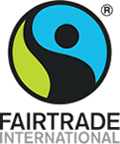In the beginning of April, Fairtrade International and the CLAC held child labour prevention workshops with coffee producer organizations in Mexico and in Guatemala.
Before the workshops, focus groups were conducted with 26 children in Mexico to learn from them about their schooling, involvement in coffee production and future aspirations.
In Mexico, the workshop was held with Federación de Indígenas Ecológicas de Chiapas, FIECH, a second-level organization in the state of Chiapas in the South of Mexico. FIECH is made up of 3500 farmer members organized into 19 grassroot organizations.
Thirty participants from FIECH attended the workshop including a mix of coffee farmers and technical staff.
“Since the training with Fairtrade International and CLAC, many of us in FIECH will stay committed to implementing concrete actions. We would like to move on from only good intentions to do something meaningful about this delicate issue in our communities.
We would like to make the first step in ensuring proactive follow-up,” said Juan Carlos Navarro, from the technical team of FIECH, who participated in the workshop.
The second workshop was hosted in Guatemala, close to the border of Mexico in Huehuetenengo with Asociación de Cooperación al Desarrollo Integral de Huehuetenango, ACODIHUE.
This producer organization has over 7000 members, organized in eighteen local cooperatives, of which 975 are Fairtrade certified. Eighty percent of the Fairtrade farmers are women. Twenty-six participants attended the workshop of which 18 were coffee farmers including 12 women.
Feedback on the workshops were positive, even though a lot more work is needed going forward. The participants in Mexico expressed that they would need additional support in engaging their communities, including material to support building awareness on child labour prevention and increased child protection.
The technical staff in particular asked for targeted training to support youth involvement in community based monitoring and remediation on child labour. Participants also asked for support for prioritizing child labour prevention among farmers living in situations of abject poverty, including areas where migrants from indigenous communities live.
Similar concerns were voiced by farmers in ACODIHUE, especially women producers. One producer noted that she will take a strong stand against child labour and wanted to know who to go to for help in her region.
She also encouraged her fellow participants to become strong advocates to increase the well-being of children and youth as the young people are not currently interested in coffee farming in the future.
In group discussions, producers were able to clearly identify types and conditions of work that could be classified as child labour, including living situations of children involved in coffee production.
As in Mexico, participants requested training materials and targeted support to reach indigenous communities who live in extreme poverty and who migrate with their children from time to time in search of work in coffee-producing areas.
“As CLAC we are very satisfied with this close collaboration. Our Strategic Plan and Organizational Strengthening Strategy includes a focus on child protection and the well-being of the next generation, approved by the General Assembly of CLAC in Quito in 2012,” said Marike de Peña, President of CLAC and Chair of Fairtrade International.
“We as a Fairtrade producer network will create the first child protection policy, which will enable us, as producers, technical experts and field staff to ensure children and youth in and around Fairtrade producer organizations are given priority in terms of their protection.
Further, CLAC will support any producer organization that is interested in creating their own child protection policy and ensure they receive necessary training and guidance to provide internal compliance.”
Fairtrade International already has its own child protection policy and procedures, signed by Chair Marike de Pena and CEO Harriet Lamb.
This policy and procedures will be used by the three Fairtrade producer networks as a reference as the CLAC, Fairtrade Africa and Network of Asian and Pacific Producers develop their own policies and procedures.
This work has been guided and supported by Anita Sheth, Senior Advisor on Social Compliance and Development at Fairtrade International.
“With the rights-based information, cost effective tools, targeted trainings and real case examples, producers are able to lead the way in contributing to a better world not only for themselves and their children, but for the rest of us as well,” said Anita, who was the lead trainer at the workshops in Mexico and Guatemala.














